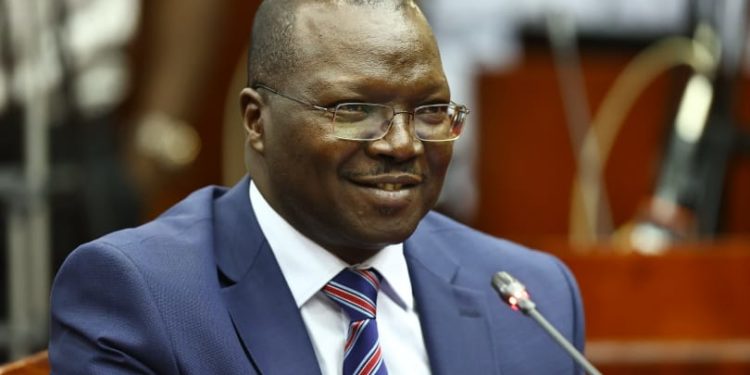Cabinet Secretary Simon Chelugui has assured that every shilling can be accounted for, while emphasizing the fund’s digital safeguards against mismanagement.
During an interview with Citizen TV’s Yvonne Okwara, Chelugui defended the 18-month-old initiative, which has disbursed KES 54.5 billion Kenyan shillings to date. The fund, aimed at providing affordable credit to underserved Kenyans, has faced criticism over its high non-performing loan rate and questions about its operational transparency.
“I can face Kenyans and assure them that all the money in the Hustler Fund can be traced to the cent,” Mr. Chelugui stated. He revealed that a Secretariat with 12 staff members has been established to oversee operations and support service providers.
The Cabinet Secretary highlighted the fund’s digital infrastructure as a key safeguard against potential mismanagement. “There’s no human intervention at all. We just fund the wallet,” he explained, noting that the lending process relies entirely on established telco and banking platforms.
However, the fund’s 30% non-performing loan rate, significantly higher than the sub-1% rate reported by private sector digital lenders, has raised eyebrows. Chelugui defended this discrepancy, citing the fund’s social mandate to rehabilitate borrowers previously blacklisted by credit bureaus.
“We are carrying out rehabilitation and intervening in a market failure,” he said, adding that the fund has onboarded about 23 million Kenyans, with 18 million having borrowed.
The initiative’s savings component, which has accrued KES 3.1 billion, was also highlighted. Chelugui explained that 70% of these savings are earmarked for long-term pensions, while 30% are accessible within a year.
Despite these assurances, questions persist about the fund’s impact and sustainability. Critics argue that the subsidized 8% interest rate may not adequately prepare borrowers for mainstream financial markets.
Chelugui countered by framing the fund as an “incubation period” and “mentorship level” for financially excluded Kenyans. “By the time someone is borrowing KES 50,000 – KES100,000, they will have built enough financial muscle,” he asserted.












